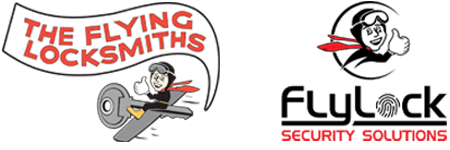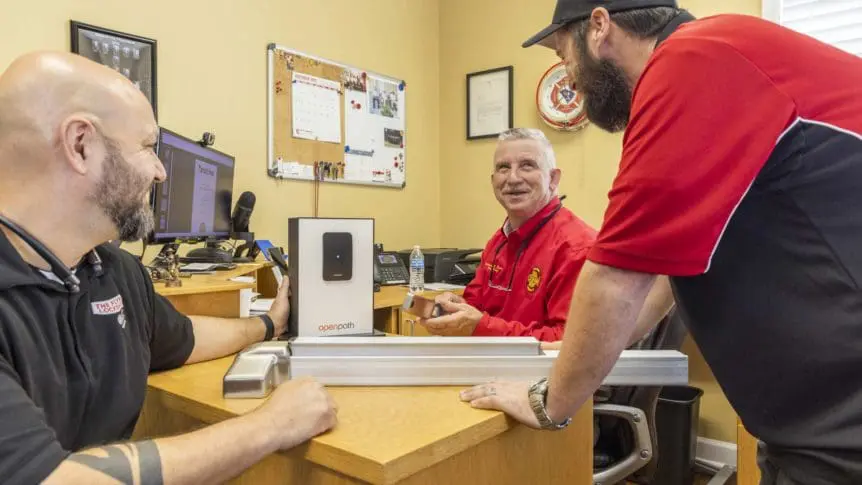
Jake Pflaumer
National Hardware Expert
jakep@flyinglocksmiths.com
Access control systems have been around for decades, but only recently has adopting them been an affordable option for most business owners looking to make employee and customer access management easier. Our top access control systems list reflects the fact that not every system fits every site and every budget.
Access control has evolved significantly, incorporating advanced technology to enhance security and streamline operations. Modern door access systems provide robust building access and identity verification, ensuring that only authorized personnel can enter specific areas. These systems are integral to an effective access management system, offering comprehensive solutions for businesses of all sizes.
In today's digital age, managing who can access your building is more crucial than ever. With the right system, you can monitor entry and exit points, gather data on access patterns, and enhance security through early detection of unauthorized attempts. The integration of cutting-edge software with traditional hardware means that you can have real-time data at your fingertips, enabling informed decisions and swift responses to any security breaches.
Our curated list highlights the best access control products and resources available, taking into account various business needs and budgets. Whether you're looking for a basic setup or a sophisticated identity management solution, our guide provides the information you need to choose the right access control system for your specific requirements.
It’s easy to get caught up in just how many options there are, so we’re compiling our list of the top hardware and software for small business owners. First, though, let's set some definitions on what types of solutions you should be looking at, as certain types of access control systems are better suited for specific sites over others.
Types of Access Control Systems for Building Access & Identity Verification
Keyless entry systems generally fall into three categories based on the functionality and use case of the system. These include:
- The Cloud-Based System: Mobile Access Control
- The Network System
- The Standalone System: A Commercial Physical Security Lock
It’s important to get a good grasp on what types of systems are available and what your business setup and specific needs allow. For instance, if there isn’t proper power or network connectivity nearby a door, that can complicate an access control system installation.
The Cloud-Based Access Control System: Mobile Access Control
WHAT IS CLOUD-BASED ACCESS CONTROL?Cloud-based access control systems communicate to offsite servers through internet-connected devices and enable a user to control or audit access to their site remotely through online portals. This modern access control technology leverages the power of the internet to provide flexible and scalable solutions for businesses of all sizes.
Because these systems do have cloud computing involved with their usage and are regularly updated with new features, there is typically a license fee associated with their use. This can range widely depending on how many doors and what type of license a small business purchases. The integration of cloud-based software enhances the overall security system by ensuring real-time updates and patches, which are essential for maintaining secure access.
Typically though, these license fees are reasonable and affordable for the plusses an online portal brings to small business owners and admins. With cloud-based access control, businesses can enjoy the benefits of mobile access, allowing administrators to manage entry points from anywhere using their smartphones or other internet-enabled devices. This level of convenience and control is unmatched, providing a significant upgrade over traditional systems.
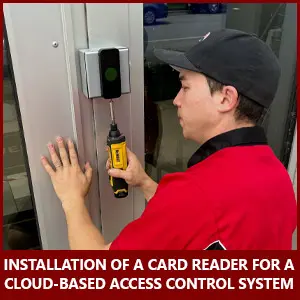 One of the key features of cloud-based systems is the use of advanced software that integrates AI capabilities for enhanced detection of unauthorized access attempts. This intelligent detection system can alert administrators to potential security breaches, ensuring prompt response and heightened building security. Moreover, door controllers connected to the cloud enable precise control over who can access specific areas, thus ensuring secure access throughout the premises.
One of the key features of cloud-based systems is the use of advanced software that integrates AI capabilities for enhanced detection of unauthorized access attempts. This intelligent detection system can alert administrators to potential security breaches, ensuring prompt response and heightened building security. Moreover, door controllers connected to the cloud enable precise control over who can access specific areas, thus ensuring secure access throughout the premises.
Data management is another critical advantage of cloud-based access control systems. All access events are logged in real-time, providing a comprehensive audit trail that can be invaluable for security reviews and compliance purposes. This extensive data collection helps in analyzing access patterns and optimizing the security system accordingly.
The use of cloud-based technology also means that businesses do not need to invest heavily in physical equipment. Instead, they can rely on the software and internet-connected devices to manage their access control needs. This reduction in upfront costs makes it an attractive option for small businesses looking for effective security solutions without a significant capital outlay.
Cloud-based door access systems offer a range of benefits, including mobile access, enhanced detection capabilities, and comprehensive data management. These systems represent a modern approach to building security, leveraging the latest technology and resources to provide a robust and flexible access control solution. By adopting a cloud-based product, businesses can ensure they have a scalable and future-proof security system that meets their evolving needs.
The Network Access Control System
WHAT IS NETWORK ACCESS CONTROL?Network access control systems connect via a local network but do not have cloud-based integration, so there are no monthly fees associated with their use. These systems provide a cost-effective solution for businesses that need robust access control without the ongoing expense of cloud subscriptions.
Network systems in the past have received a bad reputation for being unwieldy—often tied to their need to be constantly online and hosted through an on-site IT computer. This perception was largely due to outdated systems that were installed years or even decades ago and lacked the advancements in modern technology.
Much of this poor reputation is driven by antiquated access systems still in service. However, modern network access control systems are incredibly reliable and offer impressive functions without the burden of a monthly license cost. They provide seamless integration with existing IT infrastructure and can be managed through sophisticated access control software, which offers a high level of customization and control.
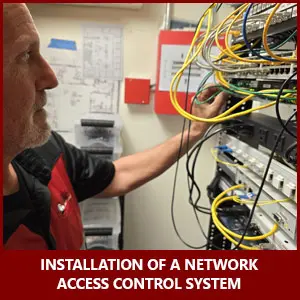 One of the key benefits of network systems is their ability to manage both physical and logical access. This means that not only can these systems control who enters a building, but they can also regulate access to network resources and data. This dual functionality ensures comprehensive security management for businesses.
One of the key benefits of network systems is their ability to manage both physical and logical access. This means that not only can these systems control who enters a building, but they can also regulate access to network resources and data. This dual functionality ensures comprehensive security management for businesses.
Modern network access control technology has evolved significantly, making these systems much easier to use and maintain. They offer robust security features and can be scaled to fit the needs of any organization. With advancements in technology, these systems are now more user-friendly and provide a high level of security without requiring constant supervision.
In terms of resources, businesses can save on costs associated with cloud-based systems while still enjoying a high level of security and functionality. Network systems leverage existing local network infrastructure, which can reduce the need for additional hardware or specialized equipment.
At the end of the day, network access control systems provide a reliable and cost-effective solution for managing building security. They are particularly suited for businesses that prefer a one-time investment over recurring costs. By utilizing advanced software, these systems can deliver comprehensive access control without the need for cloud integration.
The systems offer a practical and efficient alternative to cloud-based systems. They provide secure, reliable access control without ongoing fees, making them an excellent choice for many businesses. With modern technology and sophisticated software, these systems can meet the diverse needs of today’s security landscape.
Standalone Access Control Systems: A Commercial Physical Security Solution
Standalone systems are a bit different from online systems in that they are typically designed and installed as separate locks that are programmed individually and do not necessarily have an online portal to control and access audit trails. These systems offer a straightforward approach to access control, providing essential security functions without the need for network connectivity or cloud integration.
Standalone systems work extremely well for large sites where access only needs to be controlled on a few entryways. They’re also solid picks for entryways far from their IT closet, networking room, or power hookups. This makes them a versatile access control solution for a variety of building layouts and logistical constraints.
Typically, systems like this will have many ways to allow access, whether they be key cards, fobs, biometrics, or mobile authentication. The flexibility in access methods ensures that businesses can choose the most convenient and secure option for their specific needs. This variety of access methods also enhances the overall security by providing multiple layers of authentication.
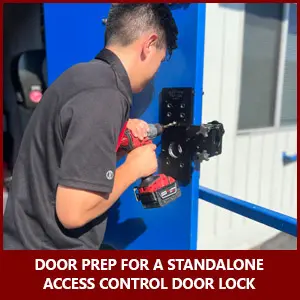 One of the advantages of standalone access control systems is that they do not rely on complex software or network resources. This independence from IT infrastructure makes them easier to install and maintain, particularly in environments where network access may be limited or unreliable. Despite their simplicity, standalone systems can be highly effective in controlling access and ensuring security.
One of the advantages of standalone access control systems is that they do not rely on complex software or network resources. This independence from IT infrastructure makes them easier to install and maintain, particularly in environments where network access may be limited or unreliable. Despite their simplicity, standalone systems can be highly effective in controlling access and ensuring security.
Standalone systems can also be integrated with other security measures, such as video surveillance. By combining standalone access control with video monitoring, businesses can enhance their security protocols, capturing video evidence of all access attempts. This integration provides a comprehensive security solution that leverages both physical and video-based monitoring.
Moreover, these systems are ideal for businesses that require reliable access control without the ongoing costs associated with network or cloud-based systems. As a one-time investment, standalone access control products offer cost-effective security solutions that can be easily managed on-site. This makes them an excellent choice for small to medium-sized businesses looking to enhance their security without incurring significant expenses.
In conclusion, standalone access control systems provide a practical and efficient solution for physical security. They are well-suited for various settings, offering flexible access methods and integration with video surveillance. With their ease of installation and maintenance, these systems are a valuable product for businesses seeking robust access control without the complexities of network integration.
ACCESS CONTROL TYPES
Cloud-Based:
Access systems which can fit many needs and connect through the cloud to offer portal access on any device. They usually have a usage fee to cover computing costs.
Network:
Traditional, access control software connects over a local network to offer on-site staff access to audit trails and the ability to control access as needed.
Standalone:
Keyless entry systems installed per-door that typically connect over a local network, don’t always require power and network hookups and are used to accommodate unique situations or businesses with few doors that require controlled access.
WHAT KEYLESS ENTRY SYSTEM IS BEST FOR A SMALL BUSINESS?
The great news is, it depends on the site! Start with deciding what type of system is best for your business. Next, start to research and get passionate about a keyless entry system. First though, ensure you’ve selected the right solution for your business.
THE CLOUD-BASED SYSTEM IS BEST FOR:
- Large, multi-door businesses
- Multi-site businesses, high-traffic businesses
- Businesses that often require limiting or allowing access quickly from anywhere
THE NETWORK SYSTEM IS BETTER FOR:
- Businesses who want a network-connected system but don’t need to access a cloud-portal to manage their security
- Businesses who need to issue physical cards
- Sites with access to power and wireless or wired internet access points
THE STANDALONE SYSTEM IS BETTER FOR:
- Single-site businesses with lower employee counts or low turnover
- Doors which are isolated from a wireless network, are low traffic or have a unique installation situation making standalone systems more beneficial
- You’re looking to control access on a smaller budget and can handle having a limited audit trail
YOU MAY WANT TO CONSIDER OTHER DOOR ACCESS SOLUTIONS IF:
- Your doors are far from wired network connection sites
- You have poor wireless connection at those doors
- You only need to monitor one site and can do so from your office reliably
CHOOSE A DIFFERENT TYPE OF ACCESS CONTROL & BUILDING ACCESS STRATEGY FOR FACILITIES WITH:
- Doors far away from power or communication
- A need to quickly disable access credentials from anywhere
- Sites without an IT computer to host the software
OUR INSTALLERS PICKS FOR THE BEST ACCESS CONTROL SYSTEMS
CLOUD-BASED
- OPENPATH
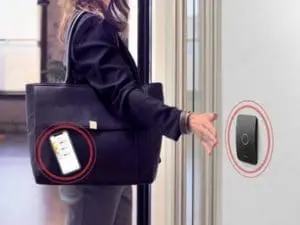 Openpath is now an Avigilon Alta product and continues to be a highly secure access control solution. With four different ways to gain access, in one touchless reader solution, it’s no surprise they’re often touted as the industry leader in keyless entry systems. Choose from their mobile app, wave-to-enter, encrypted key fobs or cards or a guest pass to give customers and employees an incredible experience from their first to their last touchpoint with your business.
Openpath is now an Avigilon Alta product and continues to be a highly secure access control solution. With four different ways to gain access, in one touchless reader solution, it’s no surprise they’re often touted as the industry leader in keyless entry systems. Choose from their mobile app, wave-to-enter, encrypted key fobs or cards or a guest pass to give customers and employees an incredible experience from their first to their last touchpoint with your business.- Openpath takes our top recommendation in cloud-based access simply because their solution is great for nearly any use-case. With an attractive card reader and a reliable portal, it’s hard to go wrong with an Openpath Touchless System.
- KISI
- Since their launch over a decade ago, Kisi Access Control Systems have continued to to be at the forefront of technology by producing sturdy hardware and user-friendly software that enables end users to manage their access control system remotely.
- Kisi card readers can utilize multiple types of credentials, including Bluetooth, NFC and RFID. The use of mobile phones for door access is also available. The types of access methods include tap to unlock, motion sense, keycards and fobs, and unlock via an app. Additional access methods include employee badges in an Apple Wallet, Terminal Pro and QR code reader functionality.
-
If you have an existing access system with card readers you don’t want to replace. You can keep legacy card readers by utilizing their Wiegand extension board to implement Kisi with other 3rd party card readers.
- BRIVO

- An enterprise solution, Brivo sports an impressive list of integrations enabling their hardware them to communicate with just about anything a business needs them to. With their portal and myriad of access solutions ranging from standalone smart locks to keypads, mullion readers and wall-mounted readers, Brivo is a great pick for any business looking in need of cloud access control.
- They take our third spot due to their portal-based access being natively integrated with standalone locking hardware ranging from mortise locks to readers to attractive escutcheon locks.
NETWORK SYSTEMS
- CDVI
- CDVI represents a core staple of the early access control landscape that is still supported and updated today. Reliable as it ever was and with mobile functionality through their Krypto pass, you’ll find CDVI to be among the best network access control solutions on the market today.
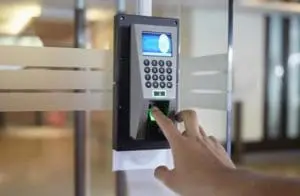
- Supports scan, touch, automatic, voice and biometric access through their Atrium app with no annual or monthly fees for the service.
- KERI
- With integrations for turnstiles, safety systems, entry panels and even elevator controls, Keri exists in a space in the access control system landscape that few with their clout can touch. Keri lands its spot as one of our top picks for access control due to the myriad situations it can manage.
- Recently, Keri has brought online their cloud solution and allowed users to migrate their current systems to the cloud at no cost. Any business unsure if a cloud-based system is right for them will find Keri to be a wonderful selection for their business.
STANDALONE ACCESS CONTROL SYSTEMS
- ALARM LOCK
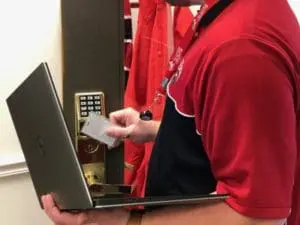
- Think of it this way—anywhere there’s a door, an Alarm Lock will fit it. Trusted by airports, education facilities and Healthcare facilities nationwide, Alarm Lock is our pick for the top standalone system.
- Alarm Lock manufacturers door alarms, exit device and a myriad other solutions to fit any need. They land our top spot due to their quick installation and the ability to upgrade solutions into connected door access systems operated on a network or in the cloud.
- CODELOCKS
- Codelocks, like the other standalone access systems on this list, can be used by themselves or be integrated with software like Remotelock to provide audit trails and become part of a cloud-based system. They take our top spot for their ease of installation, reliability, affordability and the use-cases they fit.
- Codelocks are a wonderful solution to pick with gates, office doors, lockers and aluminum doors.
- SCHLAGE CO
- The Schlage CO series of locks is a system of exit device and smart locks designed to fit on exterior and interior doors. They feature keypad and keycard access and represent well how accessible access control has become for any business.
- It takes a spot on this list for just how affordable of a solution it is. It can be used as a standalone or paired with the Schlage Engage app for mobile credentialing and access setup.
WHAT ACCESS CONTROL SYSTEM IS BEST FOR YOUR NEEDS?
These days there are numerous access control solutions so it’s impossible to list them all. At The Flying Locksmiths and FlyLock Security Solutions we don’t just sell and install one or two brands. We work with customers to determine their security requirements and provide access solutions to meet their specific needs. The access control system we recommend might be one we previously mentioned, or it could be Malibu, RS2, Feenics, Yale Accentra, ZKTeco, or a host of others.
Many factors determine what door access system you’ll need so our process starts with a site assessment to determine the number of doors and users, preferred access method, if you need an intercom system, security cameras, intrusion alarms, or other building management systems integrated within the system. But you can explore our installers favorite access control systems to get passionate about your future system. The most important thing to remember is always consult with a security professional from a reputable access control company. We’re always available for questions or to schedule a security assessment to help discover what access solution will best fit your site.
